
Good news for scientific researchers! "ChatGPT" is here specifically to talk to papers.
Too lazy to read the paper? It doesn't matter, just let this tool look at it for you. If you have any questions, just ask it.
All you have to do in the whole process is to upload papers and ask questions.

But you feel confused and don’t believe the answer it gives?
It doesn’t matter, the answers given have been clearly marked from which page and place in the paper, so you can take the test at any time.
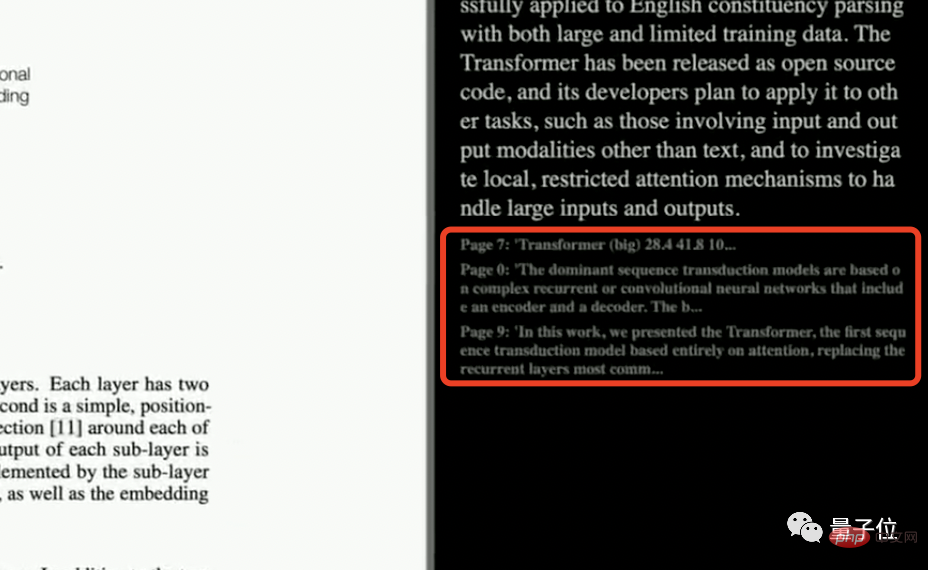
This one directly made netizens call it so cool:
I am writing a thesis, which directly saves a lot of time reading literature.

Some netizens even unilaterally announced that this is the best AI tool he has ever seen.

This small tool is called ResearchGPT. The project has been open source and has been starred 400 times on GitHub.

To use ResearchGPT, you must first have an OpenAI API key.
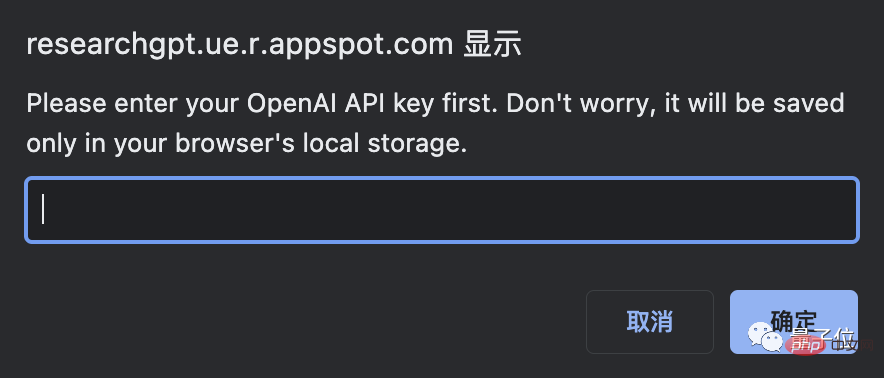
The key can be copied directly from the OpenAI official website. The specific steps are as follows:
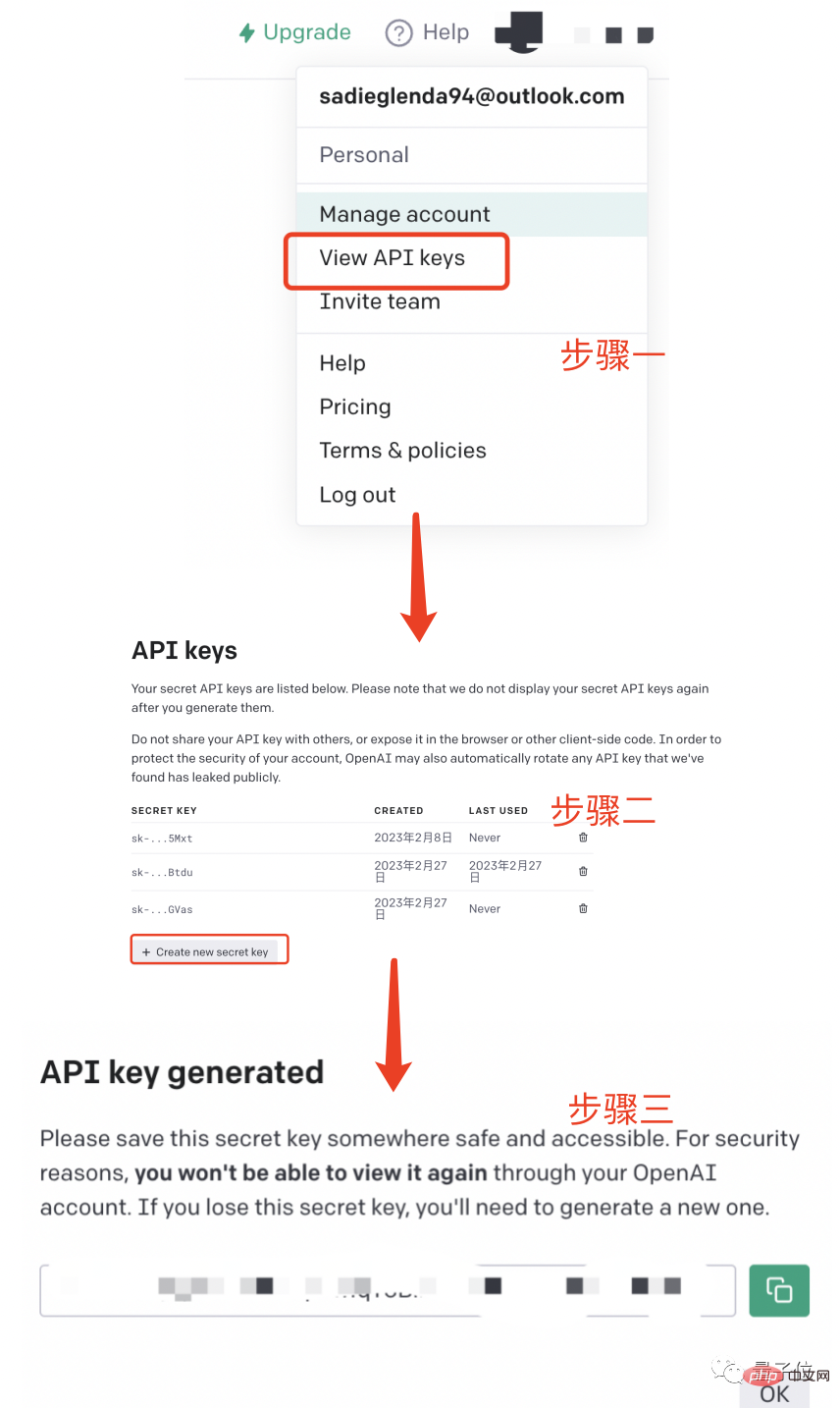
After entering the key, you can directly upload the PDF or link of the paper you want to read. On the left, it will display the original text of the paper, and on the right, you can directly ask it questions.
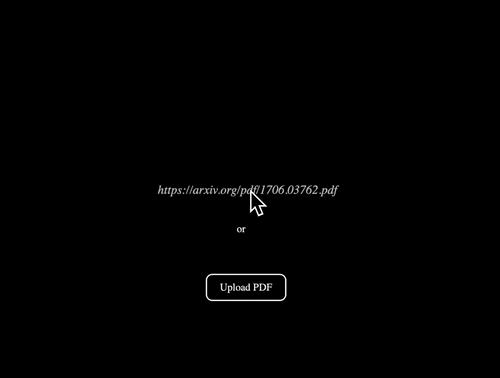
What is the answer? Go directly to the demonstration:
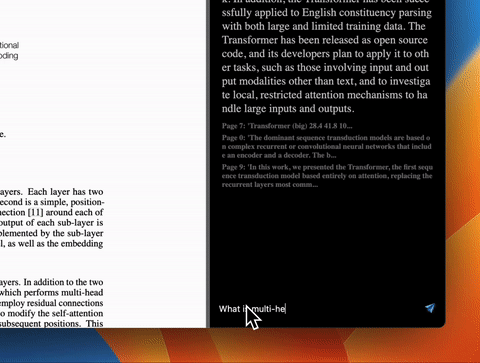
I have to say that the answer given is still reasonable.
Having said that, how does this tool manage to answer the paper fluently?
To put it in perspective, ResearchGPT will first look at the question you asked and extract the keywords from it.
Then search the relevant parts directly in the paper. As for how to perform semantic search, the answer is very simple:
Use the API of the OpenAI embedding model.
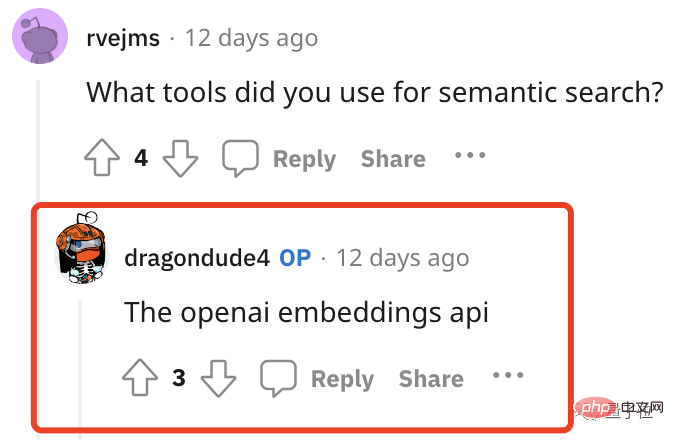
Here it directly uses the cosine similarity between the prompt word and the word embedding vector of the text in the paper to search and extract highly relevant text.
These texts ResearchGP will also be listed one by one at the end of the answer.
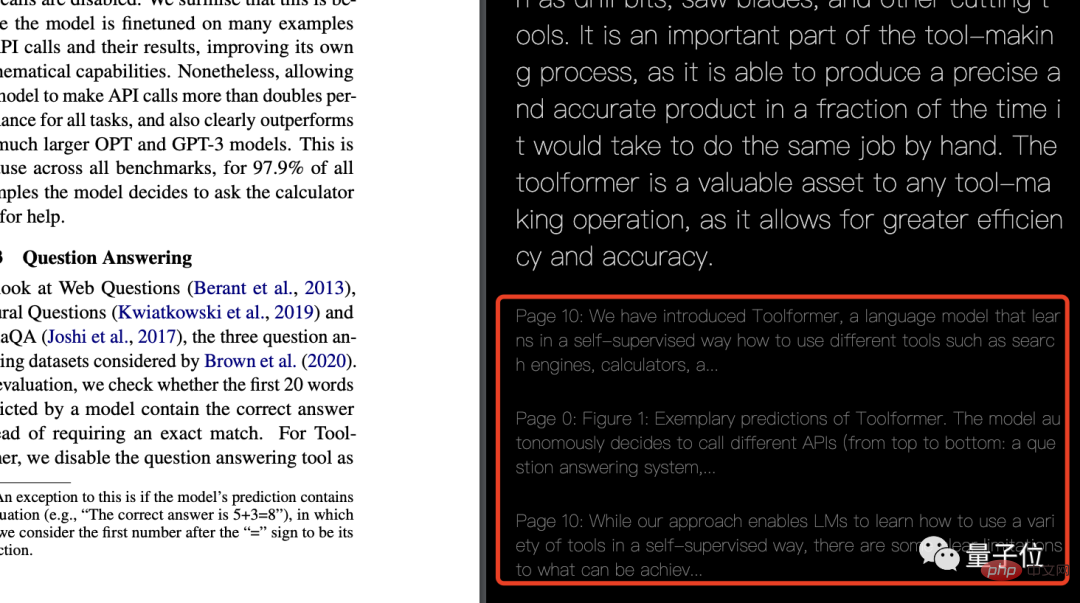
Now that the answer has been pointed out where in the paper, there is only the last step left: summary, this step is thrown directly to GPT-3 Do.
In this case, based on this idea and framework technology, can any text-based content be used for chat? The little brother himself also said:
Yes! Based on this technical framework, if you don’t want to read the code base, documents, financial reports, court cases, etc., you can let the tool explain it to you.
However, some netizens are curious, can this tool understand charts? (After all, in some papers, charts are still very important)
However, the guy who developed this tool directly gave a big no.
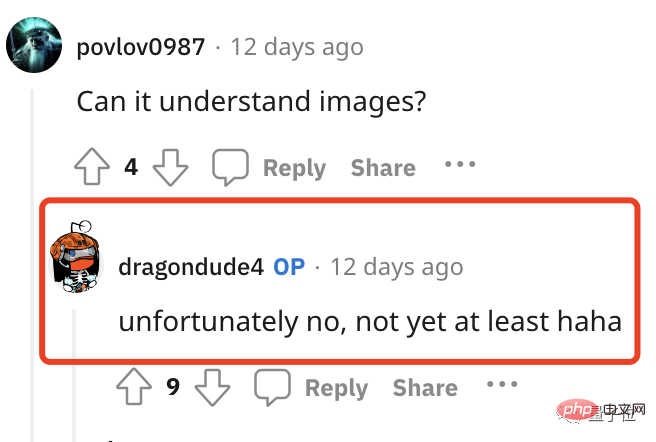
The unwilling qubit also tried it himself to see if it could understand the simplest form. The result was this:
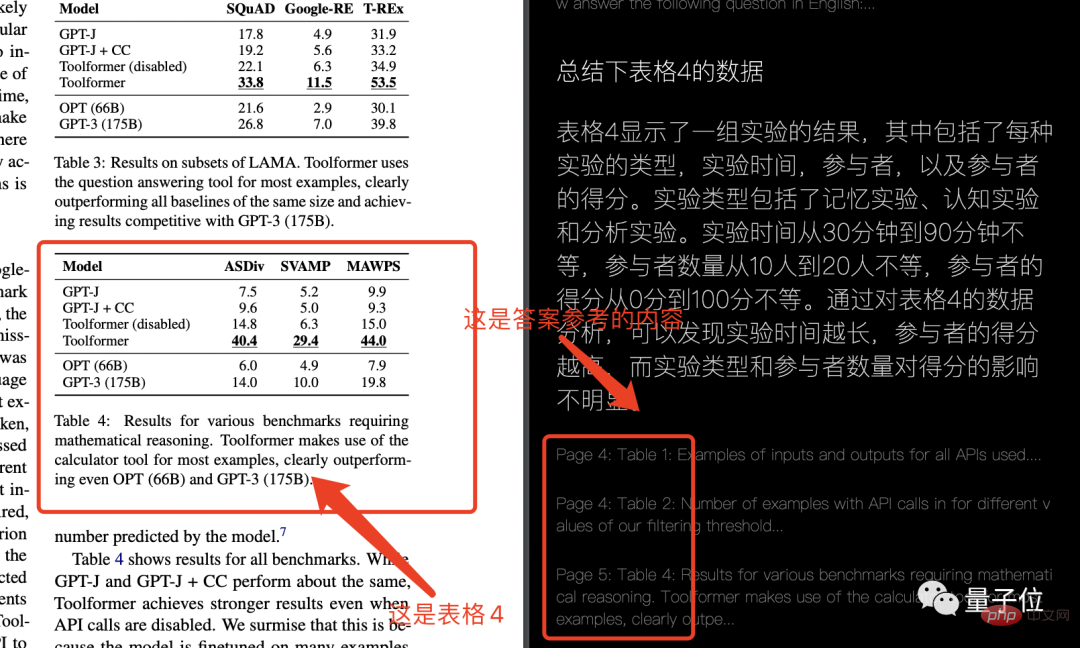
emmmmm, I can’t tell the answer. It's all wrong. It can only be said that it has nothing to do with the problem. (It’s somewhat similar to ChatGPT’s nonsense)
But in general, ResearchGPT can still be used if chart issues are not involved.
If you are interested, you can click on the link at the end of the article to try it yourself~
The guy who made this tool is named Mukul, and his introduction to himself is also interesting, saying I am both a data scientist and a developer, as well as a researcher, writer and designer.

My brother has also built a WebGPT before, which can answer questions by searching the web. It also uses GPT-3 to summarize the content.
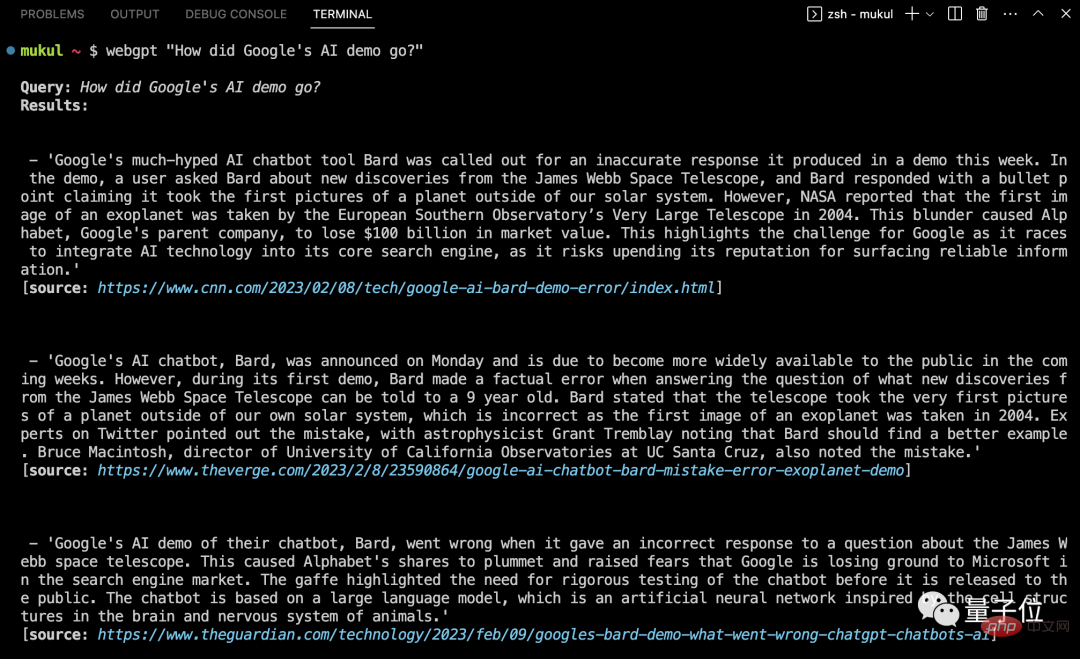
Portal://m.sbmmt.com/link/9c58da3f0418ebdb53c02615f9ab7282
Reference link:
[1] https://twitter.com/mukul0x/status/1625673579399446529?s=20
[2] https://github.com/mukulpatnaik /researchgpt
[3] https://www.reddit.com/r/GPT3/comments/112ncf0/introducing_researchgpt_an_opensource_research/
The above is the detailed content of The paper version 'ChatGPT' is here! You can read papers and ask questions at the same time. Netizen: Reading documents saves time.. For more information, please follow other related articles on the PHP Chinese website!




